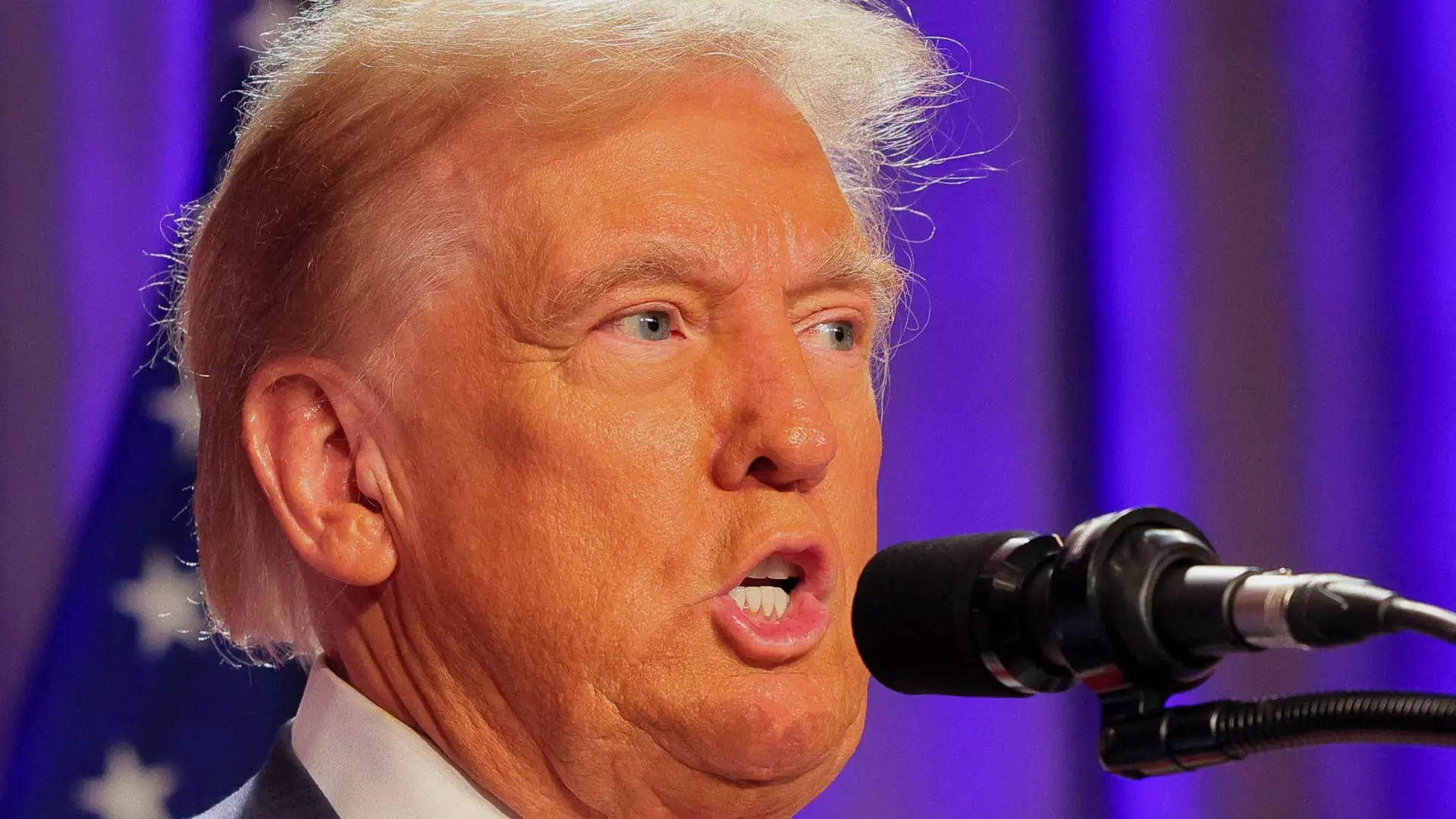In a recent exclusive interview with NBC’s “Meet the Press,” President-elect Donald Trump laid out his vision for U.S. foreign policy, particularly regarding military aid to Ukraine and the nation’s relationship with NATO. His remarks stirred immediate debate on the implications for international military alliances and the ongoing conflict in Ukraine.
One of the most poignant statements from Trump during the interview was his indication that Ukraine might receive diminished military aid under his administration. He emphasized that since the onset of the Ukrainian conflict, the U.S. has committed approximately $350 billion, while European nations have only contributed around $100 billion. This imbalance raised fundamental questions about shared responsibility within NATO and the role the U.S. should play in sustaining geopolitical alliances. Trump’s assertion that European nations should “equalize” their financial commitments resonates with his longstanding criticism of NATO partners who he perceives as not sufficiently contributing to collective defense expenditures.
The interview comes in the wake of U.S. Defense Secretary Lloyd Austin’s recent announcement of an additional $988 million aid package to support Ukraine. This aid has propelled the total U.S. assistance to more than $62 billion since Russia’s invasion began in February 2022. Trump’s comments suggest a stark shift in priorities that could affect U.S. relationships with both Ukraine and European allies.
During the interview, Trump also acknowledged Ukrainian President Volodymyr Zelenskyy’s adeptness as a statesman, dubbing him “the greatest salesman of any politician that’s ever lived.” This characterization raises critical questions about the nature of military support. Are funds allocated based on actual strategic need, or are they the result of powerful persuasion in the diplomatic arena? The implication that U.S. aid to Ukraine reflects individual relations rather than a coherent foreign policy strategy may signal a return to America-first principles, where national interests take precedence over traditional alliances.
Furthermore, Trump’s comments hint at a transactional approach to foreign policy, where financial commitments may well dictate the extent of military support. This philosophy undermines the foundational principle of NATO as a collective defense pact, raising concerns about its future in a shrinking multipolar world.
As Trump detailed his thoughts on Ukraine later in the interview, he expressed an urgent desire for an immediate ceasefire and negotiations to resolve the conflict. This at once demonstrates a conciliatory outlook but also reflects a level of naivety regarding the intricacies of international diplomacy. While he indicated confidence in his ability to broker a resolution between President Biden and Russian President Vladimir Putin by leveraging his past “good relationship” with both leaders, the complexities of the Ukrainian situation may prove more challenging than a single diplomatic handshake can resolve.
Moreover, Trump’s assertion that the war in Ukraine “should never have started and could go on forever” positions him as someone who favors dialogue over prolonged conflict—a marked departure from interventionist strategies of previous administrations. Nonetheless, one must question the implications of negotiating with aggressive states like Russia, particularly given the history of failed agreements in the region.
The interview also included discussions about U.S.-China relations, specifically regarding Taiwan. Trump refrained from affirmatively stating whether the U.S. would defend Taiwan in the event of a Chinese invasion. His reluctance to commit to military intervention reflects a cautious approach to foreign entanglements that could escalate conflicts. By asserting the need for negotiation while sidestepping clear commitments, Trump may be signaling a broader strategy of pragmatic disengagement from territorial disputes that do not directly implicate American interests.
The potential consequences of such a position are profound; a withdrawal from actively defending traditional allies could embolden authoritarian regimes while fracturing long-standing alliances. It raises pressing questions about the future integrity of U.S. commitments on the global stage.
As President-elect Trump prepares to take office, his commentary during the NBC interview hints at a transformative approach to U.S. foreign policy. With his focus on recalibrating military aid, questioning NATO’s collective responsibility, and advocating for negotiations over war, the fate of U.S. alliances hangs in the balance. His administration may indeed herald a new era of American foreign relations, one characterized by a re-assessment of commitments and a more transactional lens. While many may welcome this fresh perspective, it also invites renewed scrutiny and skepticism about the evolving dynamics of international cooperation in a complex global landscape.


Leave a Reply